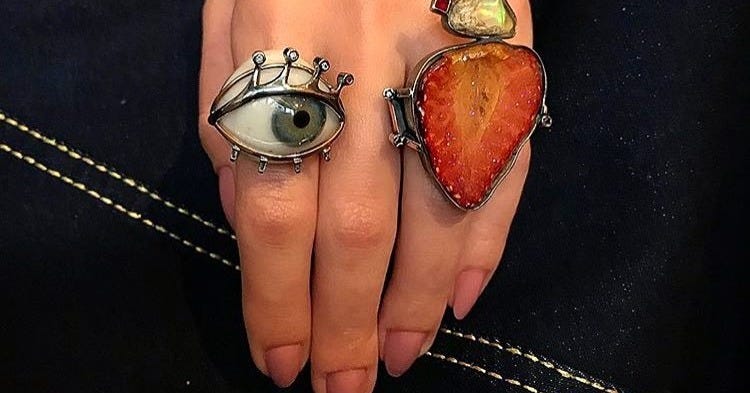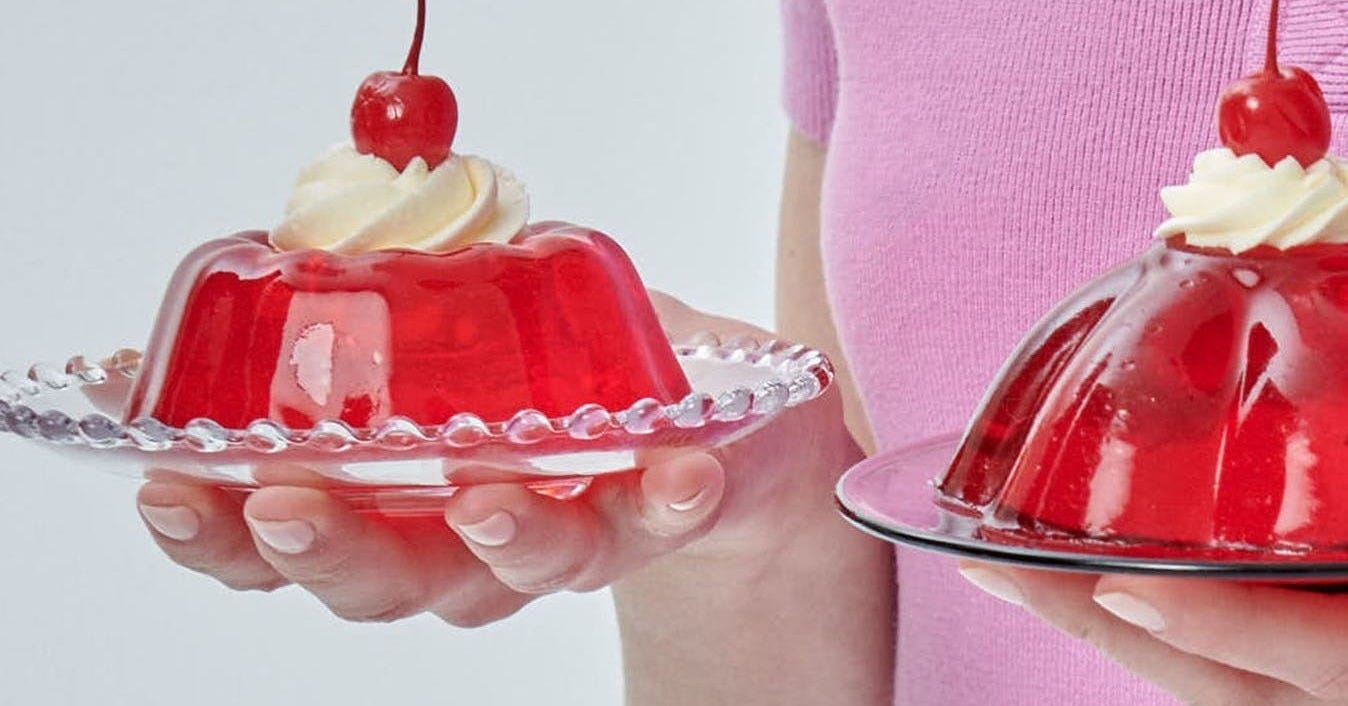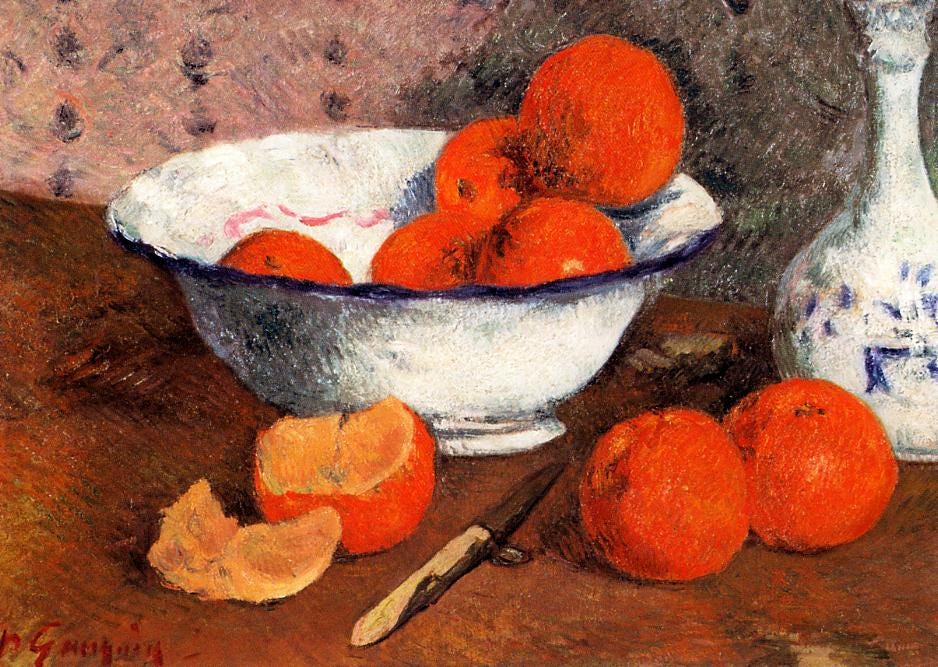if you want good taste, fall in love
the first step to getting what you want is knowing what you want
The one heart-shaped day in the calendar this month is not enough to disguise that February is where desire goes to die.
In this short but unutterably depressing black hole, I’ve been thinking about the things that make me feel alive, and excited, and glittering. It’s spitting rain in London and no one’s seen even a sliver of blue sky in weeks. If I think about summer too much (the bare-shouldered nights, the scent of that first long warm day) I’ll go insane. It’s a fragile month, so brittle with cold that it’s hard to even want anything at all, to do anything except drift in and out of these sparse short days and thick grey nights.
Like coaxing an animal out of hiding, or prising a pearl out of an oyster shell, I’ve been trying to reacquaint myself with my desires. I started with a list in my Notes app:
I notice that most of the pleasures in my list are about the journey of discovering your own taste (seeking/knowing/learning/asking/listening/trying). Like stringing charms onto a gold chain, personal taste is an eclectic process. You don’t buy a charm necklace ready-made: the point is to gather and collect and find.
Taste is a loaded word. In When Harry Met Sally, Carrie Fisher has an entire fight about it with her boyfriend, who keeps insisting: “I have good taste!”. Eventually, she bursts out: “Everybody thinks they have good taste and a sense of humour but they couldn't possibly all have good taste!”. A few years ago, the writer Stephanie Danler said, on High Low with EmRata: “social media is an act of consumption, not an act of creation.” In this vein, there’s been a lot of biting discourse recently about ‘personal style’. The fashion commentator Alexandra Hildreth said it most concisely: “You can tell someone’s screen time from their outfit.” Having bad taste is one thing — the greatest insult you can throw a bitch’s way these days is that her taste is scraped from whatever the algorithm is slipping down her throat that week.
Everyone has different ideas about how you should actually develop your taste — Mina Le, in her video-essay ‘the death of personal style’, quoted Lynn Yaeger quoting Sally Singer: “If you want to learn about fashion, learn about anything else except fashion.” It’s advice which chimes with my own instinct that taste is fundamentally about learning, meaning it’s a continual process. What follows is a selection of pathways into that process.
falling in love
I was re-reading my diary the other night (an incredibly fetishistic and self-indulgent practice, but it is February) and I stopped at a paragraph where I had listed all the things I had tried in order to please an ex. This list included whiskey, the novels of Martin Amis, the way Americans make eggs, store-bought pesto, walking around an art gallery in silence. I’d written the list over a year ago, my handwriting large and overblown and messy, which means I was angry when I wrote it. I think I hated the idea that I’d willingly tasted anything offered from his palm. Now, though, I think about the things I liked which he so willingly tried: ‘90s romcoms, expensive moisturiser, the novels of Vladimir Nabokov, English breakfast tea with too much milk, disco night at Paper Dress Vintage, talking through the entire runtime of a movie.
What pieces of each other we might have discarded or taken away are our own to unpack, but I do think that one of the nicest things about loving a lot of different people is that you get to discover their version of pleasure, their version of a rainy day, their version of a Saturday night, their version of eggs in the morning, their version of well-spent hour. Part of the pleasure of cultivating your own taste is the discovery of someone else’s.
We talk about taste like it’s something you’re born with, as if we were never those children who hated the sourness of wine or the drabness of black and white films and then grew up one day and said, “Actually, I think my palate has changed.” But taste is something you acquire through life; a series of encounters with people, things, and situations. Your taste is shaped by what you pass through. I can’t drizzle cheap olive oil over a bowl of pasta because my mother brought us up in a kitchen where there were always two bottles of olive oil: one for cooking, one for drizzling. I never liked orange wine until I started drinking it with my friends. I only got into Brat after the boy I liked told me I should listen to it properly. I pierced my cartilage because I thought my flatmate’s ears looked so cool. I started cold-water swimming because my friends go to the Hampstead Ladies’ Pond even when it’s -1° degrees out.
This summer, a boy and I were lying in my bed. He was eating a clementine, and offered me a segment. The next evening, I wrote in my journal: “I wonder if he knows it’s a gesture I have long associated with love.” Love and poems and fruit, it’s a natural gesture, it’s an everyday kind of love: this tastes good, I want you to taste it too. And what is more romantic than enjoying something so much that you want the people you love to experience it too? What is love, if it’s not the sharing of good things and good feelings and a perfect clementine?
getting weird

“Her taste level is off the charts. She really gets it.” This is Charli XCX on Addison Rae, one of the only TikTok stars to successfully break out of the algorithm. I’ve been thinking about Addison Rae a lot: ‘High Fashion’ came out last week with a music video where Addison squirms around in burning fields, icing sugar, and overflowing shoe closets. It’s sexy and messy and — weird. Last year, Viktoriia Vasileva wrote on her Substack that Addison Rae “is approaching this so-called ‘rebrand’ with the innocence of a child that’s yet to know what it’s like to feel self-conscious and the skills of an amateur who committed to putting herself out there despite the self-induced cringe”. Vasileva pinpointed Addison as a part of a wider cultural move towards weirdness, where: “weird makes you pause to question whether it’s real, but even if it’s not, it still delights you with the effort it took to create.”
“I think I’m just a really curious person,” Addison told Rolling Stone. In the same interview, she talked about bringing moodboards and collages to songwriting sessions. She wears vintage Betsey Johnson on the runway and black nipple-tape to pump gas. Her curiousness is of the Alice-in-Wonderland persuasion: curious as in adventurous, but also curious as in bizarre. She purposefully falls down rabbit holes, and shows no embarrassment about the way she has changed and developed her taste.
This is crucial, because there is nothing worse than people who are always trying to trip you up for trying something new, or for saying something that contradicts something you said years ago, or for doing something you said you’d never do. Hypocrisy is just what stubborn people call change. Tasting things you never thought you’d try is a gateway to potential untouched pleasures — Miuccia Prada says she loves to find ways into the things she hates: “I become willing to work with it. I tend to work against my own taste.”
being alone

bell hooks is alone in her bedroom, wearing a silk gown, smelling of lemon verbena soap from Paris. A book rests lightly in her hands, half-open, and her head is full of dreams, desires, unspoken fantasies. I’ve been carrying this image, from hooks’ essay, ‘Women Artists: The Creative Process’, with me this month, a kind of talisman. “I am a girl who dreams of leisure, always have,” hooks writes, “Reverie has always been necessary to my existence. I have needed long hours where I am stretched out, wearing silks, satins, and cashmeres, just alone with myself, embraced by the beauty around me.”
Cooking for one is like getting dressed up to stay in your bedroom, or thinking of a joke when no one’s about, or masturbating. It might seem pointless because you’re alone, or a dress-rehearsal for the real thing – but I think it’s the most reliable, perhaps in some ways the purest, path to your own tastes, pleasures, and desires. “Whenever I was home alone at night I cooked myself a perfect little dinner,” remembers Rachel in Nora Ephron’s novel Heartburn. “I would pick a recipe from Michael Field or Julia Child and shop on my way home and spend the first part of the evening painstakingly mastering whatever dish I had chosen.” It’s a wonderful thing to share, but some things taste better alone: a yielding mango eaten with your hands, the bloody solipsism of a rare steak.
In urban planning, landscapers sometimes talk about “desire paths”, unplanned routes through cities or parks which form as a result of people walking wherever they want. hooks presents time alone as a place, somewhere you go to unearth yourself and what you want: the “thoughts, dreams, and intense yearnings, often the kind that, like unrequited love, go unfulfilled”. In these spaces of psychic desire, your senses are not just awakened – they’re liberated, exploring new territories, crafting illicit desire paths. When no one is watching, what scents, what textures, what tastes, what sounds, are you drawn towards?








this is so important to me!! oh the beauty of realizing how many parts of yourself you've actually picked up from the people you love(d).
I loved reading this! It’s funny timing because I’ve been chewing on what it is that makes me feel valued in a relationship- whether friends or lovers. And it’s always people who like to share the things they love and why they love them! It’s a true act of love and vulnerability- an authentic truth